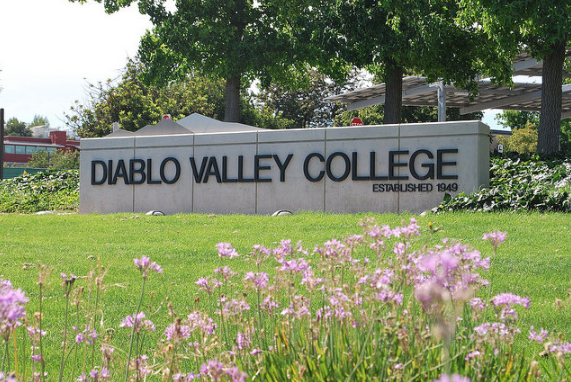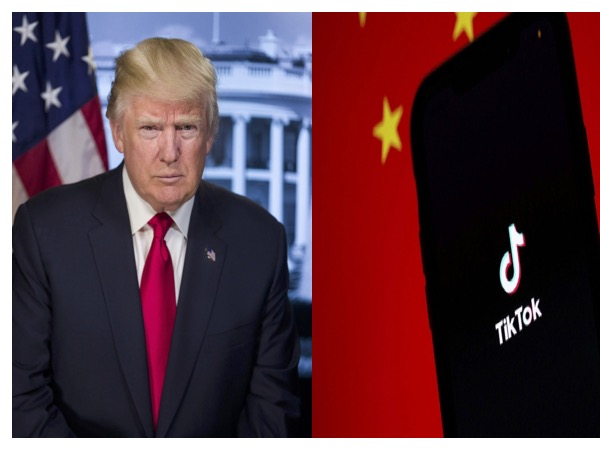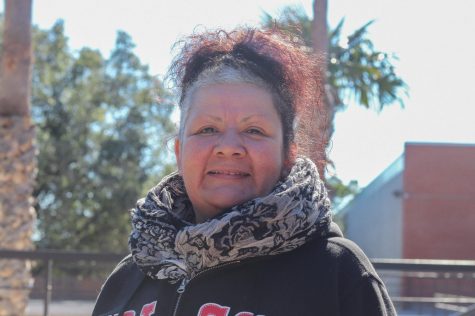DVC Students Feel the Bern As Sanders Promises to End Student Debt and Make College Free

Lindsey Barrows, a 22-year-old part-time student, said she finds the DVC campus more sustainable compared with other schools she has attended. (The Inquirer file photo).
February 26, 2020
Most Democrats have by now gotten behind the idea of instituting some form of debt-free or tuition-free college, though they still disagree on how much of the tab should be covered. In other words, what exactly does “free” college mean?
Some candidates have supported making all four years of college free for students whose families earn less than a threshold income. Others, meanwhile, only favor offering free community college and vocational or trade schools.
The most aggressive plans, put forward by senators Bernie Sanders and Elizabeth Warren, would not only wipe out current student debt and make public colleges free, but would offer more assistance to students so they don’t have to take on additional debt to cover the high cost of books and living expenses.
For young voters especially, candidates’ solutions to skyrocketing student debt are among their top concerns heading into the California primary. Lani Kwon, a 20-year-old economics major in her second year at DVC, said she doesn’t really follow politics, but she has heard of Sanders – and his idea of free public education at colleges and universities sounds like a great one.
“It would be very beneficial and would help (students) in careers, not just in finding jobs but contributing to a strong educational background for each individual,” Kwon said, adding that she is “inclined” to vote for Sanders on the basis of his free education proposal alone.
“Student loans cause a huge burden in someone’s life. They put off starting families and careers because they have to start focusing on paying back their student loans.”
Among Sanders’ signature issues is the promise to make college tuition-free while eliminating all outstanding student loans.
Currently, about 45 million Americans have student loans totalling around $1.6 trillion. Sanders promises to pay for his’ proposal, which he estimates would cost $2.2 trillion over 10 years, with a small tax on Wall Street transactions. Experts estimate the tax could raise hundreds of billions of dollars annually, easily covering the cost of providing college and wiping out student loans.
As nationwide support grows for Sanders – who has already won in Iowa, New Hampshire and Nevada, the first three contests in the primary season – support for the Vermont senator is spiking especially among college students. According to a poll in Politico, “zillenials” (a combination of Millennials and Gen Z) now support Sanders by almost a three time margin over former Vice President Joe Biden.
Although Senator Warren also proposes free college and wiping out student loans, under Warren’s plan, student loan forgiveness would be capped at $50,000 per borrower
Warren’s proposal also includes a means test with eligibility based on income. Under a Warren presidency, borrowers who earn up to $100,000 a year would be eligible for the maximum student loan forgiveness benefit; borrowers who earn between $100,000 and $250,000 would get a gradually reduced benefit, and borrowers earning more than $250,000 would not be eligible to have student loans forgiven. Despite the caps and restrictions, Warren’s campaign says that 75 percent of all outstanding student debt would be cancelled and 95 percent of student loan borrowers would receive at least some benefit under the proposal.
By contrast, Sen. Sanders’ proposal would cancel all $1.6 trillion in student loan debt and would not include means testing or income qualifications.
Rida Khan, 19, a first-year biology major at Diablo Valley College, said she will also be voting for Sen. Sanders in part because of his proposal to grant free college for all four years.
But Brook Aguilar, a 21-year-old second-year communications major here, said that while Sanders’ stance on free education was important, she wondered whether he could get it done.
“I am skeptical if the politicians will actually do what they promise, how true their promises are, and what logistics they have to fulfill their promises,” she said. She added that student loans are a “systemic issue,” as high school students are pushed to pursue higher education at prestigious, expensive schools but aren’t told about the high cost of tuition, books and other life expenses.
Even for those who choose the community college route, she said, it still ends up being very expensive to study. Aguilar, who described herself as a “bad voter,” said her sisters would be voting for Sanders, but her dad prefers Mayor Pete Buttigieg, of South Bend, Ind.
For her, in this election like most others, she said, it feels like a matter of voting for the “lesser of two evils.”









































































